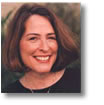| |
  |
|
|
By Linda Breen Pierce
From Chapter 1: Why Simplicity?
Joe worked hard to provide this lifestyle for his family. Every morning he left for work at 7:00 a.m. and returned 12 or more hours later. His commute took 45 minutes each way. He spent his evenings reading and responding to over 200 e-mail messages related to his job as a regional sales manager for a major steamship line. Pressure from senior management and customers was constant, but Joe handled it quite well - at least that's how it appeared from the outside. He entertained his customers frequently with drinks and dinners in fine restaurants. Many weekends he was away on business trips. Joe had the feeling that his work week never really began or ended. Not surprisingly, Cindy began to feel like a single parent. On those frequent evenings when Joe did not make it home for dinner, she hauled the kids off to a fast food restaurant for dinner, a distraction - something of a treat to compensate for their missing father and husband. One day Chelsea came to her dad with a drawing and proudly announced, "Daddy, look what I did." Joe pointed to each person in the picture and asked Chelsea to tell him about each one. Chelsea responded, "That's Quinn. He's crying. That's Shane. He just hit Quinn. I am reading a book and Mommy is cooking dinner." Chelsea then pointed to the one remaining figure, saying, "That's you, Daddy." "But why is my face all colored in?" Joe asked his daughter. "That's not your face, Daddy, that's the back of your head. You're working on your computer." Chelsea's drawing was a stunning revelation to Joe. He envisioned his daughter all grown up and remembering her dad as a person who was always working, a person who was not there for her. At that moment, Joe understood what was most important to him. It was not the status and stimulation of his job, his house, the swimming pools, or the health club. It was his wife and his three children. As Joe reflected, "
Joe and Cindy's story is representative of millions of people in the world today. As we move into the next millennium, people everywhere, but especially in North America, are questioning what it really means to have the "good life" we have worked so hard to achieve. How We Got Here It has been a fifty-year odyssey to get where we are today. Shortly after World War II, we entered a period of great prosperity and material abundance - a prosperity that continues to grow unabated, except for minor fluctuations from time to time. But here we are, fifty years later, with many of us finding that our hearts and souls are hurting. The prosperity we have enjoyed - our larger and more luxurious homes that house our increasing cadre of furniture, clothes, gadgets and toys, in addition to our fancier cars, second homes, and lavish vacations - is just not enough. These things do not bring us the happiness and peace we hoped for and expected. According to the National Opinion Research Center at the University of Chicago, we Americans earn twice as much money at the close of the twentieth century than we did in 1957; yet, the percentage of people who report that they are "very happy" has declined during the same period. In fact, we are struggling to make sense of the spiritual and emotional wasteland we call modern life. We feel trapped in an almost compulsive drive to amass more wealth, status, and power. There is an addictive quality to this consumer-driven lifestyle. No doubt about it, each additional boost of wealth, status, and power gives us a high that feels so good. But like any addiction, the high is fleeting, often leaving us feeling worse than ever and convinced that the solution is to get more. If materialism is addictive, so is our desire for productivity and efficiency. We are constantly trying to milk the most out of each minute of the day - on the phone while doing something else (like driving), driving instead of walking, reading the newspaper while eating breakfast, watching TV while helping our kids with their homework. Our love affair with productivity and efficiency generates busy, chattering minds. We are like the lead robot character in the movie "Short Circuit," always clamoring for more input. Often we have trouble relaxing when
And we have plenty of company. When an addiction is the cultural norm, it is hard to realize we need help. After all, isn't everybody doing it? Gaining perspective on our condition is a real challenge when our society depends on our staying this way to continue its economic growth. The 1995 report, Yearning for Balance, prepared by The Harwood Group and commissioned by the Merck Family Fund, concluded that we Americans feel our priorities are "out of whack, that materialism, greed, and selfishness increasingly dominate American life, crowding out a more meaningful set of values centered on family, responsibility, and community." However, the report also indicates that we are ambivalent about what to do. We are attached to our material comforts and do not want to give them up. At the same time, we are aware that our deepest aspirations are nonmaterial ones. And what exactly are our deepest aspirations? What do we seek out of this experience called life on earth? These questions have engaged writers, thinkers, philosophers, and spiritual teachers since time began. I could not possibly address the full scope of these life questions. However, I suggest that most of what we want in life are aspects or manifestations of two overriding desires: inner peace and fulfillment. It is no secret that the pace of life and the organizational structure of work in America do not facilitate inner peace. Rather, they are fertile breeding grounds for agitation, fear, frustration, and anxiety. The corporate world spends millions of dollars a year hiring outside consultants to help them create less
We know, of course, that removing all sources of stress in our lives will not by itself make us happy. We also seek fulfillment; we seek to serve some purpose in this life, to feel that our lives have meaning. We seem to be genetically programmed to learn, to grow, and to make a contribution. And so, our individual life paths become yin and yang affairs. For example, we may try working in a certain job that is challenging and rewarding, bringing us fulfillment. At the same time, however, the job may not be congruent with our values, or the work activity or hours may be too intense, depriving us of inner peace. Peace and fulfillment do not always lead to one another; sometimes they lie at opposite poles. We are continually balancing the desire for inner peace - facilitated by a quiet, inner life - with the desire to go out into the world, interact with others, create, and contribute. And it is in this respect that the practice of voluntary simplicity can help. Living simply can facilitate a life of balance, purpose, and joy. It allows us to gain perspective on our material needs and desires, which in turn gives us the opportunity to satisfy our nonmaterial drives for inner peace and fulfillment. Getting Clear About What Simple Living Really Means Throughout this book I use the terms "voluntary simplicity" and "simple living" interchangeably. We should pause to consider what we mean by these terms. The concept of simple living carries with it numerous myths and misconceptions. Perhaps the biggest misconception is that simple living is the same thing as easy living. Often, it is far from easy. Another common misconception is that simple living involves depriving oneself of the material benefits of modern life. Deprivation is not a part of the true meaning of simplicity. Voluntary is a key element of the philosophy of simple living. Living without adequate food, shelter, clothing, and medical care is not simple living. Nor is it voluntary simplicity; it is involuntary poverty. The term simple living truly is a misnomer. More descriptive terms might include "mindful living" or "intentional living," terms that are neutral on the issue of whether more is better or less is more. In truth, sometimes more is better, depending on the person and the issue being considered. My best shot at a definition of simple living would go something like this: Simple living or voluntary simplicity are lifelong processes in
When we view simple living or voluntary simplicity in this way, it becomes clear that there are no rigid rules to this approach to life. When thinking about simple living, some people envision moving to the country, growing their own food, chopping wood for fuel, and living in isolation. Others might picture a life in the city, living in a small, sparsely furnished apartment with no job. You may be surprised to know that only a small percentage of people who simplify their lives choose these lifestyles, which are more the exception than the rule. Many others who simplify live much more conventional lives, often continuing to work for a living, raise their families, explore their religious or spiritual interests, connect with their communities, and enjoy their leisure time. Living simply is not about rejecting the material comforts in life. However, it does involve unburdening our lives, living more lightly with fewer distractions - whether they are material things, activities, or relationships. It means letting go of anything that interferes with a high quality life. Many of us are attracted to simple living because our lives are stressful and complicated. Sometimes, we get to a point where we have all the outward appearances of success but feel a vague, unsettling emptiness inside. So, what can we do about this? How exactly do we simplify our lives? The answer is not merely to read a variety of how-to-simplify-your-life books and then select some tips and tricks to incorporate into your life. It involves a much more creative, complex, deep, and soul-searching process. Simplicity requires a two-step process. First, we must invest the time and energy to discover what stirs us as human beings, what makes our hearts sing,
Finding out who we really are and what we truly want is perhaps best discovered by learning about others who are in the process of doing the same. To those ends, we will look into the hearts and souls of those who have traveled this path and have been so generous to share their stories. We will experience their doubts, fears, false starts, "aha" moments, and their successes. We will learn what motivated them to start on their journey and what worked and did not work for them. Perhaps their experiences will give us the courage, inspiration, and confidence to embark on our own paths to simplicity. For many of us, this process necessarily requires us to slow down a bit. It is nearly impossible to discover who we truly are inside if we are rushing through our mornings to get ready for work, squeezing in errands during our lunch hours or on our way home, collapsing in an emotional stupor in front of the TV in the evenings, and filling our weekends with chores and activities that numb us to the inner pain we are feeling. We have to slow down. We will learn from the stories in this book how slowing down and taking regular time for reflection enabled others to champion their authentic selves and how it can do the same for us. For some people, the primary focus of voluntary simplicity is to enhance the quality of their lives. Often they talk about the joys of personal freedom, precious moments living in the present, relief from stressful or unsatisfactory work, deeper spirituality, and greater intimacy with family and friends. They have found that living simply brings them inner peace. Others view voluntary simplicity as a means to experience a deeper connection with all other life on the planet. They emphasize taking action to preserve the earth's resources, working towards the realization of global, social and economic equality, and building strong, local communities of interdependence by sharing resources.
There have been some stimulating exchanges and debates in various Internet and other discussion forums about whether the true meaning of simple living is or should be more of the former (personal satisfaction) or more of the latter view (other-directed concerns). What I have learned from the participants in The Pierce Simplicity Study is that some people resonate with the former point of view, others favor the latter, but the vast majority of people find meaning in a balance between the personal and the other-directed aspects of simple living. Another controversial issue debated in discussions on simple living is whether this lifestyle trend pertains primarily to those who are fairly well off, such as the group of professional baby boomers who are now middle-aged and have some savings, or whether simple living has something to offer those in the lower income brackets who have nothing that resembles a nest egg. It is important to distinguish between people with low incomes and those who have insufficient means to obtain the basics of food, clothing and shelter. If we are struggling to provide the basic necessities for survival, in contrast to acquiring fancier cars, houses, TVs, and all the other accessories of modern life, we are less likely to focus on nonmaterial aspirations, such as inner peace and fulfillment. We are inclined to view the purpose of life as survival and little more. On the other hand, my experience of living in a Senegalese village taught me that even the lack of physical essentials does not negate the possibility of fulfillment and joy. In any event - and this is especially true in our North American culture - once basic material needs are met and appear not to be threatened for the immediate future, we experience life on a different level. We experience different stresses and types of fulfillment. Our expectations change. For example, once getting a job, any job, is no longer an issue, we then expect our work to be satisfying on a deeper level. We look for further meaning and purpose beyond basic survival. As you will see in the chapters that follow, the majority of the study participants do not come from high-income backgrounds. Nor do they have the benefit of substantial savings and investments. The principles of voluntary simplicity appear to work for all income levels, at least for those people who have the basic necessities in life. The issues are different, of course, for the person who is struggling to get unburdened from mountains of debt and the person who is seeking to reinvent his or her life with sufficient financial resources. Even so, the process - the discovery of who you really are and the act of taking steps to create a life that reflects the real you - are the same for both. Living simply is not an end in itself. It is a way to create lives filled with peace and fulfillment for ourselves and for others. Linda
Breen Pierce is a writer, keynote speaker and workshop leader in
the areas of voluntary simplicity and work/life balance. Choosing
Simplicity recounts her three-year evaluation of more than 200 people
- from 40 states and eight countries - who have experimented with simplifying
their lives. She shares the inspiring stories of these people in her
writing, speaking, and workshops. Pierce also developed and maintains The Simplicity Resource Guide. |
|
Home | History & Archive | Video Productions & Services © Copyright 1998-2023 EcoIQ
|













 [The
excerpts below are from an engaging book by Linda
Breen Pierce -
[The
excerpts below are from an engaging book by Linda
Breen Pierce -  They were the proud parents of three children - Chelsea, six, Shane,
two, and Quinn, the baby in the family.
They were the proud parents of three children - Chelsea, six, Shane,
two, and Quinn, the baby in the family. 